

Cylib
Pioneering End-to-End Battery Recycling for a Circular European Future
cylib is building the next generation of battery recycling—efficient, holistic, and climate-positive. Spun out of RWTH Aachen University and based in Germany, cylib is on a mission to close the loop on battery materials and power Europe’s green energy transition with low-emission, high-yield recycling.
Through its proprietary process, cylib enables the full recovery of critical elements from lithium-ion batteries—including lithium, cobalt, nickel, manganese, and graphite—with a verified 90% recycling efficiency and up to 80% lower carbon footprint compared to virgin extraction.
A Fully Integrated, Sustainable Recycling Solution:
-
End-to-end recycling for EV batteries, production scrap, and black mass—from safe discharge to refined raw materials
-
Water-based lithium and graphite recovery, reducing chemical usage and environmental impact
-
Recycling powered by 100% renewable electricity, setting new industry benchmarks for sustainability
-
Industry-ready materials such as lithium carbonate, cobalt and nickel sulphates, and recovered graphite—ready for reuse in new battery production
Europe’s battery ecosystem demands scalable, local, and circular recycling to meet regulatory targets and reduce reliance on imported raw materials. cylib’s vertically integrated approach enables: Localized recovery of all battery elements to reduce waste and maximize reuse, seamless integration into gigafactory ecosystems and OEM collection networks, fast, compliant, and modular deployment across the EU.
From pilot operations in Aachen to its first industrial-scale plant in Dormagen, cylib is leading the industrialization of sustainable battery recycling in Europe. Let’s close the loop—together.


Fortum Batterie Recycling
Closing the Loop for Critical Battery Materials – Today, in Europe, for Europe
Fortum Battery Recycling is a pioneering force in Europe’s transition toward a circular, low-carbon battery value chain. As the only company offering a fully integrated, pan-European solution across the entire battery lifecycle—from safe collection and pre-treatment to advanced hydrometallurgical refining—Fortum is setting the standard for scalable, sustainable EV battery recycling.
At the heart of Fortum’s offering is Europe’s largest closed-loop battery recycling facility, located in Harjavalta, Finland. This state-of-the-art plant uses proprietary low-CO₂ hydrometallurgical technology to recover up to 95% of critical battery metals—nickel, cobalt, manganese, and lithium—from black mass, enabling true circularity for electric vehicle batteries.
Fortum Battery Recycling brings to market:
-
End-of-Life Battery Services: Secure handling, collection, transport, and dismantling of lithium-ion batteries, including EV and industrial systems.
-
Production Scrap and Hazardous Waste Recycling: Pre-treatment and disposal solutions for battery manufacturing waste streams and complex hazardous materials.
-
Sustainable Raw Materials Supply: Industrial-scale production of battery-grade recycled materials—nickel and cobalt sulphates, lithium hydroxide—ready for direct use in new cathodes.
-
Pan-European Recycling Infrastructure: Kirchardt, Germany – Pre-treatment and logistics hub; Ikaalinen, Finland – Mechanical processing facility; Harjavalta, Finland – Flagship hydrometallurgical refining site; Tornio, Finland – Recycling of metal industry side streams for battery metals
Fortum’s multi-site ecosystem ensures proximity to OEMs, battery manufacturers, and gigafactories across Europe—supporting regional collection, reducing transport emissions, and simplifying compliance with EU regulations.
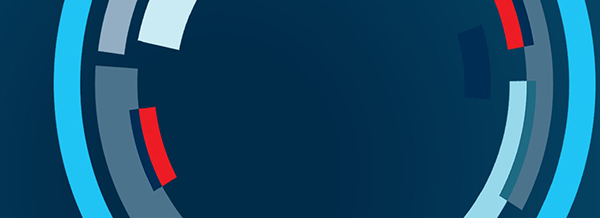
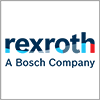
Bosch Rexroth
Automation Powering the Battery Circular Economy
Bosch Rexroth is a global leader in drive and control technologies, delivering innovative automation solutions that are transforming the battery recycling landscape. Leveraging decades of engineering expertise and a deep commitment to sustainability, Bosch Rexroth enables industrial-scale recycling with cutting-edge systems that enhance safety, efficiency, and circularity.
At the forefront of battery end-of-life innovation, Bosch Rexroth has developed a patented deep discharging automation solution—reducing the time required to safely neutralize EV battery cells from 24 hours to just 15 minutes. Their modular ctrlX AUTOMATION platform and TS 5 transfer system provide scalable, Industry 4.0-ready infrastructure for battery diagnostics, discharging, and dismantling.
With a focus on integrating energy recovery, minimizing fire risks, and enabling rapid scaling across multiple battery formats and recycling facilities, Bosch Rexroth is a critical partner for recyclers, OEMs, and gigafactories seeking to build safer, greener, and more profitable battery value chains.
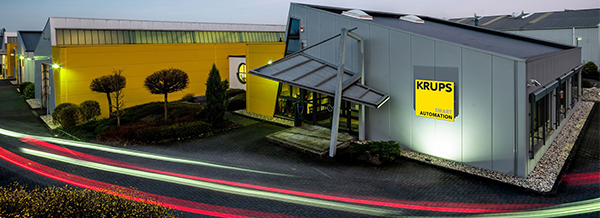
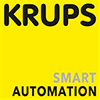
KRUPS Automation
Intelligent Conveyor Systems Enhancing Efficiency in EV Battery Disassembly
KRUPS Automation GmbH specializes in tailor-made conveyor systems and assembly automation solutions designed for high-complexity production environments—including electric vehicle component assembly lines and testing workflows. With state of the art in-house manufacturing capabilities, controls integration, and global reach across Europe, the U.S., and China, KRUPS delivers complete turnkey conveyor systems—from design and fabrication to assembly and service.
-
Modular Conveyor Platforms:
Their LOGO!MAT series eCart, L and XL —offer flexible, reconfigurable conveyor solutions capable of handling varied payloads up to 2.000 kg and evolving production demands. -
Energy-Efficient Automation:
The eCart system includes self-propelled workpiece carriers powered by track-embedded power rails (no onboard batteries), consuming energy only during motion—yielding over 80% energy savings compared to traditional conveyor systems. -
Smart Control & Safety Features:
The eCart system offers data communication with central PLCs, dynamic speed and parameter control, integrated diagnostics, and TÜV-certified safety levels (“Performance Level D”), making them safe and adaptable from manual to fully automatic assembly and test processes for high-velocity component build. -
End-to-End Delivery & Support:
The company handles the full project lifecycle in three locations on three continents—from consulting and planning to manufacturing, assembly, installation, and ongoing servicing—ensuring tight integration and quick commissioning using standardized components. -
Sustainability Focus:
Beyond manufacturing efficiency, KRUPS maintains a strong commitment to sustainability, reflected in modern facility design, employee practices, and internal use of electric mobility and solar power.
As automated dismantling and sorting become essential for scalable, safe, and compliant battery recycling in Europe, KRUPS offers foundational experience and solutions in conveyance technology that enhance performance, adaptability, and sustainability.
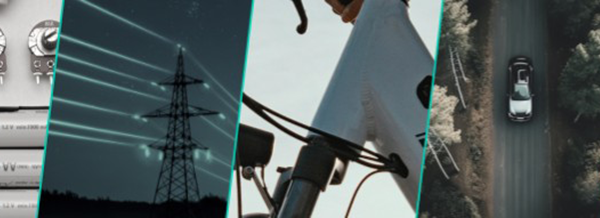
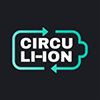
Circu Li-ion
Pioneering Automated Battery Disassembly for Safer, Smarter, and More Circular Recycling
Circu Li-ion is transforming the economics and safety of battery recycling through robotic automation. As Europe’s leading provider of automated disassembly and diagnostics, Circu Li-ion empowers OEMs, recyclers, and battery manufacturers to recover more value from EV and micromobility batteries—faster, safer, and with unmatched precision.
At the heart of Circu Li-ion’s offering is its scalable robotic disassembly technology, developed in Luxembourg and deployed at their certified facility in Kuppenheim, Germany. Whether through Disassembly as a Service (DaaS) or Machine-as-a-Service, Circu Li-ion delivers modular, plug-and-play solutions for handling end-of-life battery streams with maximum traceability and compliance.
-
Automated Battery Disassembly
State-of-the-art robotics recover up to 98% of components while minimizing human risk and labor costs.
-
Battery Diagnostics & Discharging
Safe, efficient battery handling and assessment—critical for reuse, remanufacturing, and second-life applications.
-
Modular Deployment Models
Use Circu Li-ion’s in-house capabilities or install robotic disassembly units at your own facilities with flexible Machine-as-a-Service models.
-
Component Valorization
Recover reusable modules, cells, and valuable streams to improve profitability and support circularity goals.
As automated recycling becomes critical to scaling Europe’s circular battery economy, Circu Li-ion is setting the standard for efficient and regulation-ready pre-treatment. Their robotics-driven platform enables battery stakeholders to reduce transport emissions, increase material recovery, and unlock the next generation of second-life and recycling pathways.
Circu Li-ion represents the future of battery pre-processing—one where automation drives impact, and disassembly is no longer a bottleneck.


LUT University
Driving Circular Battery Innovation Through Applied Research & Regional Ecosystem Development
LUT University is a leading Finnish public research institution with campuses in Lappeenranta and Lahti. It offers multidisciplinary expertise across engineering, energy systems, chemical engineering, and sustainability sciences—all underpinned by a strong focus on circular economy and renewable technologies.
Battery R&D Cluster in Southeast Finland
LUT spearheads a project aiming to build two regional RDI environments for measurement, testing, and battery recycling innovation. These environments support industrial symbiosis across the emerging battery materials sector in Southeast Finland and promote reuse of active battery components through comparison of recycled versus virgin electrode properties.
BATCircle – Circular Ecosystem for Battery Metals
LUT plays a central role in the BATCircle 2.0 initiative—part of a consortium of universities, research centers, and industry partners—developing advanced metallurgical recycling processes across the battery value chain. Their work includes solvent extraction and ion exchange for direct lithium recovery and refining of multimetal leachates to cathode-grade materials.
Novel Hydrometallurgical Processing Routes
In a 2025 dissertation by Tobias Wesselborg, LUT researchers introduced two innovative hydrometallurgical methods—solvent extraction and ion exchange—for high-yield recovery of lithium, nickel, and cobalt from battery waste, significantly improving metal recovery efficiency.
Lifecycle Extension through Reuse Versus Recycling
Under the SCI-MAT research platform, LUT investigates the critical trade-offs between reusing vehicle batteries versus recycling. Their work—including the EU-backed REINFORCE project—focuses on extending battery lifespans, optimizing disassembly, and enhancing circular value chain sustainability.
Why LUT University Matters to the Battery Circular Economy:
-
Systemic Innovation & Scalability – LUT bridges lab-scale science with industrially feasible recycling solutions, enabling clean, scalable metal recovery and reuse strategies.
-
Policy and Ecosystem Influence – By anchoring regional RDI infrastructures and participating in pan-Finnish innovation initiatives, LUT drives a collaborative, ecosystem-wide response to EU Battery Regulation and circularity goals.
-
Cutting‑Edge Process Development – Their hydrometallurgical methods enhance Europe’s domestic capacity for high-value, battery-grade material recovery.
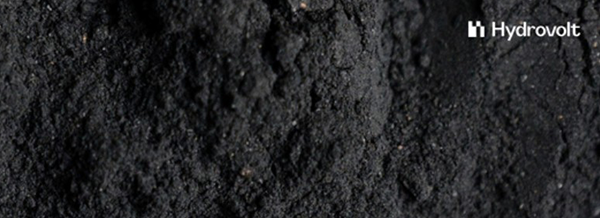
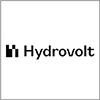
Hydrovolt
Pioneering Scalable, Safe, and Circular Battery Recycling in Europe
Hydrovolt is on a mission to make battery waste a thing of the past. As one of Europe’s leading industrial battery recyclers, Hydrovolt delivers innovative, low-emission solutions to recover critical materials from EV and industrial batteries—ensuring a battery can become a battery, again and again.
Operating one of the largest and most advanced battery recycling plants in Europe (Fredrikstad, Norway), Hydrovolt combines automation, safety, and environmental performance to recover and produce sustainable secondary raw materials. With the world’s most automated battery discharging and dismantling line, powered by renewable energy and residual energy from used batteries, Hydrovolt sets a new benchmark for safe, efficient, and climate-friendly recycling.
-
End-of-Life Battery Processing: Full-service EV and industrial battery collection, safe discharging, and precision dismantling.
-
Black Mass Recovery: High-purity black mass with 75% lower carbon footprint compared to conventional extraction.
-
Critical Raw Materials Access: Recovered secondary raw materials including copper, aluminum, steel, and high-quality black mass.
-
Circular Power: Residual energy from batteries is harvested and reused to power the plant—up to 1 GWh per year.
Key Differentiators
-
Automation & Safety: Operating the world’s most automated discharging and dismantling line to maximize throughput and minimize risk.
-
Design for Recycling Leadership: Actively working with OEMs to shape future-proof battery designs that are easier, safer, and cleaner to recycle.
-
Low-Carbon Black Mass: Delivering a 75% smaller carbon footprint vs. mined materials—without sacrificing recovery rates or quality.
Hydrovolt’s industrial-scale capabilities and commitment to innovation make it a pivotal player in advancing Europe’s battery circularity. By joining the Summit, Hydrovolt contributes a bold vision for a truly circular battery economy—and the proven technical expertise to make it happen.
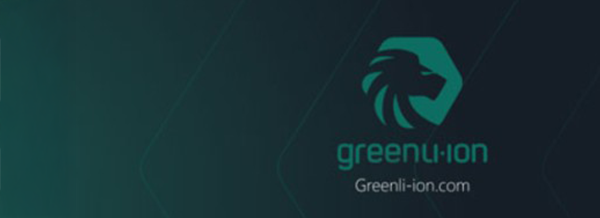
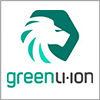
Green Li-ion
Accelerating Battery Circularity with Hyper-Pure, On-Site Recycling Technology
Green Li-ion is redefining how the world recycles lithium-ion batteries. With proprietary modular systems that deliver end-to-end recycling in a single plant, Green Li-ion enables battery manufacturers, recyclers, and gigafactories to transform black mass into battery-grade precursor materials—on-site, in under 12 hours.
Headquartered in Singapore with a growing global footprint, Green Li-ion’s GLMC™ (Green Li-ion Modular Cell) technology is the first of its kind to fully regenerate lithium-ion battery materials into precursor cathode active material (pCAM) at commercial scale, in a safe, energy-efficient, and scalable way.
Green Li-ion supports the EV battery supply chain with:
-
End-to-End Battery Recycling Units: Our modular plants accept black mass from any lithium-ion chemistry and output 99.9% pure pCAM, lithium carbonate, and other critical materials.
-
On-Site Deployment: Installed directly at gigafactories, recycling centers, or production facilities, drastically reducing logistics costs, transport emissions, and regulatory delays.
-
Chemistry-Agnostic Systems: GLMC™ handles diverse battery chemistries including LFP, NMC, and NCA, future-proofing circularity strategies.
-
Hyper-Pure Output: Green Li-ion’s technology produces materials that meet or exceed virgin quality standards—ready for reuse in battery manufacturing.
With a proven track record in the U.S., Asia, and now expanding across Europe, Green Li-ion is bridging the gap between battery waste and circular value. As battery volumes grow and regulatory pressure mounts, centralized recycling is facing limits in cost, capacity, and agility. Green Li-ion empowers manufacturers and recyclers to localize closed-loop recovery.
Green Li-ion is proud to support this year’s Summit as a pioneer of next-generation recycling systems. Our mission—to decentralize, decarbonize, and democratize battery material recovery—aligns with Europe’s drive toward energy sovereignty, sustainable mobility, and a circular economy.
We look forward to engaging with OEMs, recyclers, policymakers, and battery producers to advance practical, scalable solutions that meet both economic and environmental goals.


European Recycling Platform | Landbell Group
Empowering Battery Circularity Through Global EPR Compliance and Takeback Services
As one of the most established names in Extended Producer Responsibility (EPR) compliance, Landbell Group’s European Recycling Platform (ERP) is helping shape the future of sustainable battery recycling. With operations across 40 Producer Responsibility Organizations (PROs) in 18 countries, ERP enables manufacturers, importers, and brands to meet their obligations for waste batteries, electronics (WEEE), packaging—and now textiles—through harmonized compliance, collection, and recycling systems.
With over 145 million kg of batteries managed and a proven track record in simplifying the complexities of EPR legislation, ERP is uniquely positioned to support the growing demand for lithium-ion battery recycling infrastructure in the electric vehicle and micromobility sectors.
What ERP Offers to the EV Battery Ecosystem
-
Battery Compliance Management
Full-service EPR compliance solutions tailored to local and multinational producers placing batteries on the market in Europe and beyond.
-
Takeback and Collection Systems
Turnkey takeback services including collection logistics, recycling partnerships, and reporting—customized for portable, industrial, and EV batteries.
-
Circular Materials Recovery
High recovery rates of critical raw materials like cobalt, nickel, lead, mercury, manganese, zinc, and plastic—ensuring environmental safety and resource efficiency.
-
Data, Reporting, and Traceability
Regulatory-ready tools and systems for tracking battery flows, ensuring end-to-end compliance with the latest EU battery and waste legislation.
The summit is about solutions—and Landbell Group’s ERP is delivering them at scale. From small-volume importers to multinational OEMs, ERP provides the operational backbone that ensures every battery on the European market can be traced, recovered, and recycled sustainably


FEV Consulting
Data-Driven Circularity for the Battery Economy
FEV Consulting stands at the forefront of sustainable mobility strategy, helping automotive OEMs, suppliers, and policymakers navigate the complex and fast-evolving battery ecosystem. Leveraging deep technical expertise and a strategic consulting mindset, FEV Consulting empowers its clients to unlock the full economic and environmental potential of EV battery recycling and reuse.
At the heart of FEV’s thought leadership is CycleBat—a proprietary forecasting and cost-analysis tool designed to model the financial, regulatory, and design impacts across the EV battery lifecycle. From predicting future end-of-life battery volumes to optimizing recycling logistics, CycleBat enables OEMs to move beyond compliance and turn Extended Producer Responsibility (EPR) into a competitive advantage.
Key insights and capabilities include:
-
Lifecycle cost modeling of battery chemistries (NMC vs. LFP) and pack designs
-
Circular economy impact forecasting for battery second life and recycling
-
Logistics optimization with hub-and-spoke strategies reducing transport costs by 60%
-
Data-driven tools for regulatory alignment with the EU Battery Regulation
By combining systems-level thinking with detailed technical modeling, FEV Consulting is shaping a more profitable and circular EV future.

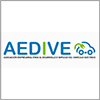
AEDIVE
Driving Policy and Partnerships for a Circular EV Battery Future
AEDIVE is Spain’s leading business association uniting the complete value chain of electric mobility—including EV manufacturers, charging infrastructure providers, battery and cell producers, energy operators, and recycling stakeholders. Established in 2010, AEDIVE brings together over 800 members across industry, services, and R&D, advocating for policy, standardization, and circular economy principles in the Spanish and broader European context.
Relevance to EV Battery Recycling & Circular Economy
-
Policy advocacy & Regulatory influence: AEDIVE actively engages with Spanish and EU authorities to shape frameworks like the Battery Regulation and EPR schemes, stressing the importance of industrial certainty and legislative alignment to enable sustainable EV ecosystems.
-
Industry integration: Through its membership, AEDIVE integrates battery cell producers, recycling firms, mobility operators, and consulting partners, fostering coordinated collaboration across circular supply chains.
-
Knowledge & capability building: Publishes annual mobility reports and whitepapers on battery safety, lifecycle compliance, and reuse strategies—helping stakeholders navigate technical, environmental and legal aspects of batteries end-of-life management.
-
Promoting circular innovation: Collaborates with organizations like ERP Spain to drive battery and WEEE recycling, collection infrastructure, and public awareness campaigns—crucial for enabling higher recycling rates and material recovery in Spain
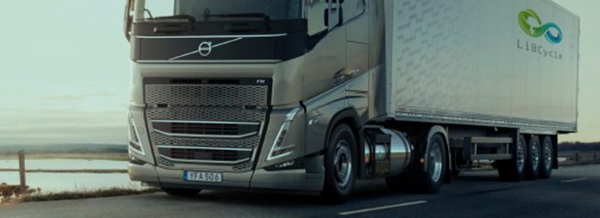
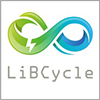
LiBCycle
Full-Service Lithium-Ion Battery Logistics, Simplified
LiBCycle is redefining how the battery industry manages the growing complexity of lithium-ion battery logistics. Headquartered in Munich, LiBCycle provides end-to-end, legally compliant transport and packaging solutions for used and defective EV and industrial batteries. From on-site classification to custom battery boxes, from safe loading to international dangerous goods transport and interim storage—LiBCycle takes the weight of battery logistics off your shoulders.
With regulatory pressure mounting and e-mobility surging, manufacturers and recyclers alike face serious challenges in safely moving, storing, and preparing batteries for second life or recycling. LiBCycle solves these pain points with an innovative, standardized solution that combines high-tech packaging, automation-friendly processes, and full-service operations.
Why LiBCycle?
-
Turnkey Service: Classification, packaging, discharging, transport & storage—managed end-to-end
-
Certified Dangerous Goods Logistics: ADR-compliant fleet, staff & permits across Europe
-
Smart Battery Boxes: Shape-agnostic, fireproof, easy-to-load containers—no external fillers needed
-
Circular Integration: Support for second-life applications and recycling via a trusted partner network
-
Minimal Risk, Maximum Simplicity: Legal, financial and operational liability handled for you
Perfect for: OEMs, recyclers, service centers, energy storage providers, micromobility operators, and battery manufacturers facing growing EoL battery volumes and regulatory complexity.
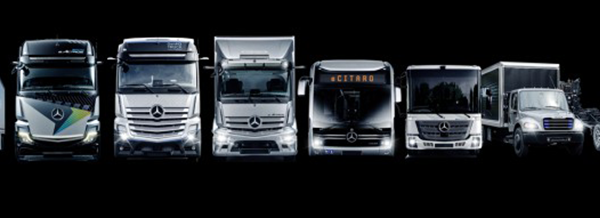

Daimler Truck AG
OEM‑Led Circular Innovation with Reworked & Second‑Life Battery Systems
Daimler Truck is a global leader in commercial vehicle manufacturing, pioneering strategies that integrate circular economy principles into the lifecycle of electric commercial vehicles. Through sustainability initiatives and innovation hubs like the Competence Center for Zero-Emission Mobility in Mannheim (Battery Technology Center), Daimler Truck emphasises reconditioning, reuse, and responsible recycling of high-voltage batteries. This approach reduces resource consumption while maintaining high-quality performance standards.
Circular Battery Strategy & Offerings
-
Genuine Reworked Batteries:
Mercedes-Benz Trucks offers refurbished replacement batteries (e.g., the CB400 for eActros 300/400 and eEconic vehicles), restored to series-standard quality and covered with full parts warranties. This remanufacturing initiative extends battery life, conserves materials, and lowers CO₂ emissions compared to new replacements. -
Second-Life Lifecycle Management (North America):
Daimler Truck North America (DTNA) implements a rigorous circular model: batteries are assessed for repair, reuse, or recycled, with repair prioritized wherever feasible. DTNA has partnered with Li-Cycle to recycle retired EV batteries, achieving recovery rates of up to 95% for critical materials like lithium, nickel, and cobalt.
Strategic Sustainability & Circular Initiatives
Daimler Truck systematically embeds circular thinking across its value chain—from product design through end-of-life. Their sustainability framework includes resource-efficient production, green energy usage, and materials reuse. The company’s Battery Technology Center enables pilot cell development and battery pack prototyping for long-term innovation. Through circular lifecycle planning, OEM-level servicing, and partnerships, Daimler Truck moves toward CO₂-neutral operations and closed-loop resource strategies.
Daimler Truck offers an end-to-end OEM-integrated circular model that includes remanufacturing, second-life deployment, and high-efficiency recycling. By retaining quality through reworked batteries, prioritizing reused capacity, and ensuring industry-level recycling standards, they provide an industrial blueprint for scaling circularity in commercial EV battery systems—supporting sustainability, cost-efficiency, and regulatory alignment.


Roland Berger
Strategic Advisory for Circular EV Battery Systems & Reuse Optimization
Roland Berger is a global management consultancy deeply embedded in the advanced battery and EV ecosystem. With over 50 specialists across battery, automotive, chemicals, energy, and mining practices, the firm delivers engaging strategic insights, data-driven forecasting, and policy guidance across the entire lithium-ion battery lifecycle—from critical material sourcing to reuse and recycling infrastructure.
Core Capabilities Aligned with EV Battery Circular Economy
-
Battery Monitor & Circular Value Chain Analysis
The firm’s renowned Battery Monitor report offers comprehensive evaluations across each phase of the battery lifecycle—spanning sustainability, technology maturity, competitiveness, and innovation. This includes deep dives into second-life applications, reuse vs. recycling decision frameworks, and recycling gaps aligned with EU Battery Regulation targets. -
Safety & Second-Life Advisory
Roland Berger provides strategic guidance on when batteries should be repurposed or refined, emphasizing carbon footprint reduction, material recovery optimization, and integration of reuse pathways into conventional recycling models. -
Supply Chain Risk & Sourcing Strategy
The consultancy advises OEMs and raw material stakeholders on supply chain localization, vertical integration, and closed-loop recycling models to mitigate exposure to price volatility and geopolitical shocks in battery materials. -
Circular Design & Sustainable Materials Strategy
Working with manufacturers and material suppliers, Roland Berger helps integrate eco-design principles—including reduced dependence on hazardous substances, improved recyclability, and adoption of bio-based or recycled plastics in EV components—to support recycled content mandates and EU eco-design standards.
Roland Berger’s strategic intelligence, market foresight, and systems-level advisory approach enable OEMs, recyclers, policymakers, and investors to build resilient, sustainable, and circular battery ecosystems. Their holistic analysis, published research, and scenario-based thinking help accelerate the global shift to a low-carbon battery economy.
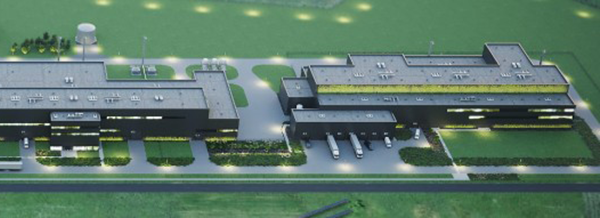
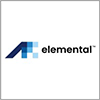
AE Elemental
European-Scale Recycling Infrastructure Delivering Circular Battery Feedstock
AE Elemental is a joint venture between U.S.-based Ascend Elements and Poland’s Elemental Strategic Metals, combining advanced recycling technology with a robust collection network to enable high-efficiency EV battery recycling across Europe.
Core Operations & Infrastructure
-
Operates a state-of-the-art recycling facility in Zawiercie, Poland, capable of processing 12,000 metric tons per year—equivalent to ~28,000 EV battery packs.
-
The site will ramp up with commercial-scale lithium extraction from black mass, processing up to 20,000 t/year by 2026.
-
A second facility in Central Germany, expected by 2026, will recycle up to 25,000 t/year (~58,000 batteries), making it Europe’s largest lithium-ion battery recycling plant.
Technological & Environmental Impact
-
The venture’s process includes safe battery discharge, mechanical shredding, and black mass generation, followed by refining to recover high-purity materials like lithium, nickel, cobalt, aluminum, and graphite with near-total recovery rates.
-
AE Elemental supports EU recycled content mandates—helping ensure new EV batteries contain required secondary material percentages by 2030.
Why AE Elemental Matters to the EV Battery Circular Ecosystem
AE Elemental delivers large-scale, near-zero-waste recycling infrastructure—the industrial backbone required to meet Europe’s evolving recycling targets. As a vertically integrated partner combining Ascend Elements’ Hydro‑to‑Cathode® innovation with Elemental’s urban mining expertise, AE Elemental accelerates the transition toward a circular battery materials value chain.
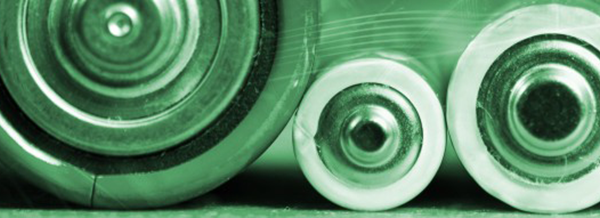
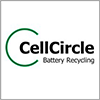
CellCircle
Direct Recycling of Functional Battery Materials for a Low-Carbon Circular Loop
Founded in 2022 as a spin-off of Germany’s Fraunhofer Institute for Silicate Research ISC and based in Würzburg, CellCircle is on a mission to create a sustainable circular economy for lithium-ion battery cells in Europe. Led by battery expert Dr. Andreas Bittner, the startup has developed an innovative direct recycling process that non-destructively separates and regenerates functional materials—such as cathode active material and conductive carbon—for immediate reuse, bypassing energy-intensive metallurgical conversion steps.
Compared to traditional recycling, CellCircle’s approach halves energy use, chemical input, and CO₂ emissions, offering high-purity secondary material suitable for cell production while dramatically improving resource efficiency. They also provide consulting services—including feasibility studies, design-for-recycling advice, and lifecycle assessments—to companies seeking recycling solutions that exceed EU Battery Regulation compliance and support post-disassembly reuse pathways.
CellCircle is a consortium partner in the EU‑funded ReUse project under Horizon Europe, focused on low-value LFP battery recycling. They lead the lifecycle sustainability analysis work package, contributing to automated sorting and enabling direct reuse validation for next-generation battery technologies. As a finalist in Bavaria’s Energy Start-Up Bayern 2024 awards, CellCircle is gaining recognition for its disruptive, scalable recycling model.
CellCircle offers a truly circular model by directly regenerating functional battery-grade materials with minimal energy and chemical inputs. Their technology and advisory services help cell manufacturers and recyclers integrate reuse loops, lower emissions, and meet recycled content mandates. Positioned at the frontier of direct recycling innovation, CellCircle drives Europe toward a high-purity, efficient, and resilient battery materials economy.


Tozero
Industrial Lithium & Graphite Recycling for a Circular Battery Economy
Tozero is a Munich-based climate-tech startup founded in 2022, with a mission to transform lithium‑ion battery waste into a sustainable resource. With proprietary hydrometallurgical technology, they recover lithium, nickel, cobalt, manganese, and graphite from black mass—achieving over 80% recovery for lithium and graphite while reducing CO₂ emissions by around 70% compared to mining.
Operating Europe’s first commercial pilot recycling plant since 2023, Tozero made history by delivering battery-grade recycled lithium to customers in March 2024, and recently demonstrated 100% recycled graphite in anode cell tests with industrial-scale performance parity to virgin material.
The company is now developing a commercial demonstration plant at Gendorf Chemical Park, set to begin operations later in 2025 ahead of full-scale production from 2026—supported by EU EIC funding and strategic industry partners.
Key Capabilities & Impact:
-
Low-emission, scalable recovery of lithium and graphite—crucial for local EV battery supply chains
-
Black mass processing model optimized for flexibility and safety via outsourced disassembly
-
Strategic partnerships (e.g. with Huayou Recycling) and capital backing to scale to treat 30,000 t/year by 2026, with expansions toward 10,000+ t graphite output by 2030
-
Real-world validation of recycled materials in OEM and industrial applications—including cell production and supply to ceramics and construction sectors
Tozero accelerates the circular battery ecosystem in Europe, offering a true recycling engine that meets regulatory goals, strengthens supply resilience, and drives decarbonization through high‑value material recovery.


Phiyond by Adelphi
Navigating Circular Battery Strategy with Digital Product Passports
phiyond by adelphi, a spin-off consultancy from adelphi Consult, is dedicated to guiding businesses through sustainability transformation, with deep expertise in resource circularity, climate strategy, and the EU regulatory landscape. As part of Europe’s leading think‑and‑do tank for sustainability, phiyond integrates systemic knowledge, regulatory insight, and business advisory to help companies operate responsibly within planetary boundaries.
Core Services Supporting Battery Circular Economy
phiyond specializes in Resources & Circular Economy, offering support in deploying the Circular Transition Indicators (CTI) framework—developed by the World Business Council for Sustainable Development. CTIs help firms map material flows, assess reuse potential, and align performance to ESRS and EU reporting standards.
They also offer Digital Product Passport (DPP) readiness support, advising organizations on how to implement traceability solutions required by the EU Battery Regulation. This includes masterclasses, strategic assessment, and operational planning to leverage DPPs as circularity enablers rather than compliance burdens.
phiyond’s broader advisory extends to sustainability transformation—including circular business model design, ESG frameworks, sustainability reporting (CSRD readiness), carbon accounting, and decarbonization roadmaps. They integrate climate strategy with resource planning to help clients meet global and EU sustainability mandates.
phiyond by adelphi helps battery ecosystem stakeholders—from OEMs to recyclers—translate regulation into strategy. By operationalizing CTIs and DPPs, they enable transparency across battery lifecycles, support compliance with recycled content mandates, and help design circular business models that align with evolving EU law. Their advisory complements technology-focused recycling firms by ensuring circularity is embedded at the organizational level, making them a strategic partner in building traceable, compliant, and resilient battery material systems.
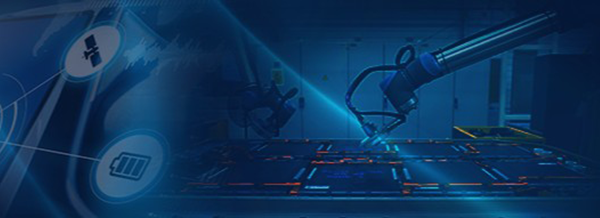
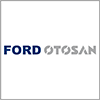
Ford Otosan
OEM-Driven Battery Circularity Strategy & Innovation
Ford Otosan, a joint venture between Ford Motor Company and Koç Holding, is one of Europe’s preeminent commercial vehicle manufacturers, operating in Turkey and Romania with over 2,000 R&D employees and a production capacity exceeding 700,000 vehicles in 2022.
Strategic Focus on EV Battery Circular Economy
-
In 2024, Ford Otosan formalized a Battery Circular Economy roadmap, led by its Product Sustainability team, integrating eco-design criteria, end-of-life battery monitoring, customer return incentives, and material recovery strategies—including sell-back of recycled raw materials to battery manufacturers.
-
Collaboration across internal teams—from environment to aftersales—facilitates systematic evaluation of battery recovery efficiency and secondary-life reuse viability, with data-driven lifecycle tracking systems under development.
Sustainability and Circularity Leadership
-
Committed to zero waste, eliminating single-use plastics in operations, and achieving 30% recycled/renewable plastics in vehicle components by 2030; also targets 40% reduction in fresh water usage per vehicle at manufacturing sites.
-
Produced 100% renewable electricity across Turkish campuses; aims for carbon neutrality at production sites by 2030, and Scope 1 & 2 emissions reduction of 78% from a 2017 baseline by 2030, with net-zero emissions across its value chain by 2050 through Science-Based Targets.
Why Ford Otosan Matters to the Battery Recycling Ecosystem
Ford Otosan offers a unique OEM-integrated approach to battery circularity—bridging vehicle manufacturing, eco-design, and industrial-scale recycling strategy. Its roadmap ensures that materials recovered from end-of-life batteries feed directly back into battery-grade raw supply. Leveraging R&D, internal cross-functional collaboration, and EU-backed research projects, Ford Otosan is emerging as a leader in OEM-enabled circularity adoption for EV battery ecosystems.
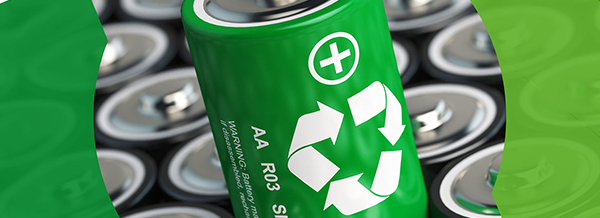
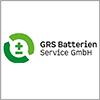
GRS Batterien Service
Compliance‑Driven Take‑Back & Circular Infrastructure for Battery Systems
GRS Service GmbH manages the operational activities of Stiftung GRS Batterien, Germany’s largest manufacturer-owned battery take-back system, serving over 4,000 producers and distributors and managing more than 170,000 collection points nationwide.
As a certified Producer Responsibility Organisation (PRO) under the German Battery Act (BattG), GRS ensures member compliance with EU Battery Regulation and national EPR requirements—providing container logistics, regulated waste collection, sorting, and environmentally-responsible recycling solutions for both portable and industrial batteries.
Key Capabilities & Strategic Impact:
-
Full-service compliance, guiding manufacturers through registration, take-back obligations, and recycling audits under EU and German legislative frameworks.
-
Nationwide logistics for secure battery collection in retail, commercial, and public sectors—with systems meeting or exceeding mandated collection targets (~50‑60% annual return rates).
-
Non-profit governance, delivering standardized services, transparent pricing, and equitable access for all manufacturers regardless of size.
-
Leadership in research & development initiatives, focusing on safer logistics, battery chemistry identification, improved recycling methods for lithium systems, and consumer incentives for proper disposal.
-
Strategic partner in EU-scale innovation, including pilot projects such as thermal “green mass” recovery for LFP battery recycling in collaboration with IBU‑tec, demonstrating scalable circular models.
GRS provides the foundational infrastructure for circularity in battery systems by bridging regulatory compliance, consumer access, and materials recovery. As Germany aligns with stricter EU battery laws, GRS ensures producers meet mandated collection and recycling targets—and plays a crucial R&D role in developing safer and more efficient pathways for lithium-ion recycling.


Liebherr Group
Automation & Engineering Enabling Circular EV Battery Disassembly
Liebherr Group is a global industrial leader with extensive capabilities across machinery, automation, and engineering. Through its Gear & Automation Systems business, Liebherr is pioneering advanced automation technologies to support large-scale, safe, and resource-efficient disassembly of electric vehicle (EV) battery packs—laying the foundation for a truly circular battery ecosystem.
Battery Circularity Solutions & Innovation
Liebherr is renowned for its development of automated systems that dismantle high-voltage battery packs non-destructively. As part of the German federal “ZIRKEL” research initiative and in collaboration with the Open Hybrid Lab Factory (OHLF), they deployed a pilot plant in Wolfsburg in November 2023 to mechanize disassembly steps, including opening pack housings, removing connectors, extracting modules, and sorting parts with full traceability—even for damaged or contaminated units. This allows early separation of reusable modules and high-value components, minimizing energy- and chemical-intensive processing of black mass.
-
Scalable automation tailored for diverse battery formats and high variability.
-
Occupational safety, reducing exposure risks from high voltage and fire hazards.
-
Design-for-recycling compatibility, enabling seamless end-of-life handling based on component structure.
Strategic Impact on Battery Circular Value Chain
By accelerating the transition from manual to automated dismantling, Liebherr is vital in enabling economically efficient extraction and sorting of high-value battery materials (lithium, cobalt, nickel, copper, aluminum). Early separation improves material quality and reduces downstream refining requirements, contributing to higher overall recovery rates. Their technology supports both reuse/remanufacturing of modules and optimized recycling of remaining feedstock.
Their innovations also inform industry-wide recycling-friendly battery design standards. Results from the ZIRKEL project will underpin future guidelines for recyclable battery product design in Europe.

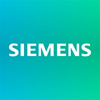
Siemens
Digital and Manufacturing Innovation Powering Battery Circularity
Siemens is a global engineering and technology leader fueling the electrification and decarbonization of industries through digitalization, automation, and circularity—playing a key role in EV battery production and recycling ecosystems. With deep expertise across manufacturing, systems engineering, and digital infrastructure, Siemens helps shape sustainable battery supply chains and circular lifecycle strategies.
Contribution to EV Battery Circular Economy
-
Siemens explores Model-Based Systems Engineering (MBSE) to design end-to-end circular flows—from battery pack assembly to end-of-life reuse or recycling—enabling closed-loop systems and minimized waste.
-
The company’s SITRAIN BAT‑PROD‑2 training equips industry professionals with expertise in battery production, diagnostics, digital twins, and circular design, covering recycling logistics and direct recycling processes.
-
Through Siemens Xcelerator’s chemical recycling solutions, the firm supports the processing of end-of-life batteries as part of a broader circular chemistry framework linking plastics, tires, and battery feedstreams.
-
Siemens Advanta delivered a proof-of-concept Battery Passport (a digital twin of each battery), enabling traceability of material sourcing, state-of-health, and recycling eligibility—aligned with upcoming EU regulation mandates.
Siemens uniquely bridges industrial digitalization with circular economy imperatives—integrating automation, data analytics, digital twin-based traceability, and systems engineering to build efficient, sustainable battery supply chains. Its platforms and expertise enable OEMs, recyclers, and regulators to tackle lifecycle transparency, eco‑design compliance, and scalable recycling deployment.
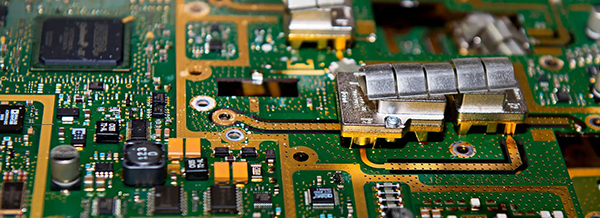

European Advanced Recycling Network
Pan‑European Battery & e‑Waste Compliance Network Enabling Circular Systems
Founded in 2003, EARN (European Advanced Recycling Network) is operated by EARN Elektroaltgeräte Service GmbH—a consortium formed by leading recycling firms including Coolrec (Netherlands), Electrocycling (Germany), and Indumetal (Spain). Its mission is to provide full-service, pan-European compliance and take-back infrastructure for WEEE (electronic waste), industrial and portable batteries, packaging, and textiles.
Core Capabilities & Services
EARN delivers one-stop EPR (Extended Producer Responsibility) solutions across all EU member states, supporting manufacturers and importers in meeting obligations under the WEEE Directive, Batteries Directive, EU Battery Regulation, and Packaging/ Textiles Directives. Their services include:
-
Producer registration and compliance reporting at country level
-
Coordination of take-back logistics and certified recycling via a network of regional partners, minimizing cross-border waste transfers
-
Oversight of regulated treatment and recovery using best available processing technologies
-
Advisory support on classification between portable vs industrial batteries, B2B vs B2C product streams, and evolving EPR obligations
Strategic Importance to the Battery Circular Economy
EARN provides foundational compliance infrastructure for companies placing batteries on the European market—offering scalable access to legally authorized collection and recycling channels. By simplifying regulatory obligations and leveraging local treatment facilities, EARN enables producers to ensure traceability and meet recovery targets as mandated by the EU Battery Regulation. As Europe increases recycled content mandates, EARN’s structured network ensures that battery-containing products are efficiently routed into responsible recycling and resource recovery systems.


McKinsey & Company
Strategic Advisory & Insights Shaping Circular Battery Ecosystems
McKinsey & Company is a global management consultancy renowned for its strategic thought leadership across energy, materials, automotive, and sustainability sectors. Within its Battery Accelerator Team and Sustainability Practice, McKinsey helps clients transition toward circular, low-carbon battery value chains—spanning raw material sourcing, production decarbonization, second life applications, and recycling infrastructure development.
Core Capabilities in EV Battery Circularity
-
End-to-End Strategic Advisory: Through its Battery Accelerator Team—comprising over 200 experts in battery R&D, gigafactory planning, and materials strategy—McKinsey supports renewable-aligned supply expansion, cost reduction, and circular deployment across the value chain.
-
Circularity Frameworks and Decarbonization Roadmaps: McKinsey publishes leading insights (e.g. “Battery 2030: Resilient, sustainable, and circular” and “Looking upstream…”) that guide materials decarbonization, circular design, secondary-material trajectories, and supply chain resilience.
-
Market Intelligence & Recycling Economics: McKinsey’s research shows that batteries made with recycled materials emit roughly one‑quarter less CO₂ than those using virgin inputs. Recycled feedstock is projected to grow rapidly—creating a $95 billion global recycling market by 2040.
-
Material Flow Modelling & Supplier Negotiation Strategy: With proprietary tools like MineSpans and battery cost-model frameworks, the firm advises OEMs and investors on sourcing economics, emissions trade-offs, and feedstock pricing—enabling data-driven decisions across the circular battery ecosystem.
McKinsey’s unique combination of exemplary market foresight, rigorous modelling, and systemic advisory services empowers stakeholders to navigate complex strategic pathways—from circular feedstock sourcing to techno-economic feasibility and regulatory compliance. Their expertise shapes capital planning, policy alignment, and ESG ambition for stakeholders seeking to build resilient, sustainable, and circular battery systems in Europe and beyond.


Rho Motion
Market Intelligence & Strategic Insight Enabling Battery Circularity
Rho Motion is a UK-based specialist providing actionable market intelligence, bespoke consultancy, and industry events across the EV battery and energy transition ecosystem—including battery recycling, raw materials, charging infrastructure, and secondary markets.
Acquired by Benchmark Mineral Intelligence in June 2024 for approximately $50 million, Rho Motion retains its London identity while now contributing to a broader global dataset spanning “mine to grid” value chains.
Key Offerings for Battery Circular Economy
-
Battery Recycling Forecast: Quarterly reports (PDF and Excel) projecting global feedstock availability through 2040—by chemistry, geography, and source such as EVs, BESS, 2/3‑wheelers, and manufacturing scrap.
-
Battery Recycling Capacity Database: Ongoing tracking of recycling plant capacities, feedstocks, technologies, location, and commissioning schedules for facilities with ≥500 t/year throughput.
-
Broader Intelligence Suite: Includes EV production and sales forecasts, battery chemistry modeling, stationary storage outlooks, and cost modeling—delivered via subscription services and analyses.
-
Custom Consultancy Services: Tailored due diligence, market-sizing, competitive landscaping, and sector-specific strategy research across EV, charging, recycling, and critical mineral value chains.
-
Events & Networking: Curated forums and executive seminars focused on battery recycling and energy transitions, bringing together leaders across recycling, OEMs, finance, and policy sectors.
Why Rho Motion Matters to EV Battery Recycling
-
Forecasting Feedstock Gaps: Helps stakeholders understand where and when recycling supply will lag demand—supporting investment planning and policy alignment.
-
Strategic Capacity Awareness: Identifies regional gaps in recycling infrastructure and emerging players, aiding partnership and site selection decisions.
-
Regulatory & Tech Contextualization: Provides insight on how policy shifts (EU Battery Regulation, CRMA, IRA) and technology trends influence recycling viability and design.
-
Investment-Grade Analysis: Supports financial players and recyclers with market due diligence and risk assessment grounded in proprietary data.
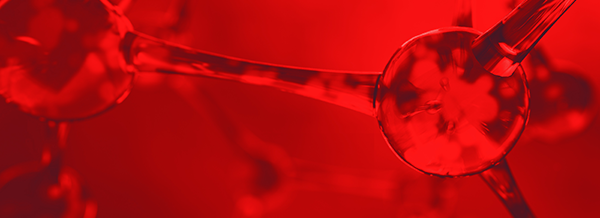

Thermo Fisher Scientific
Precision Analytics Enabling Circular Battery Material Integrity
Thermo Fisher Scientific is a global leader in analytical instrumentation and laboratory services, whose technologies play a critical role in ensuring quality, traceability, and sustainability in the battery recycling ecosystem. Their advanced portfolio spans elemental analysis, spectroscopy, microscopy, in-line gauging, and process analytics—enabling stakeholders in research, manufacturing, and recycling to validate material composition, monitor impurity levels, and uphold circular economy standards.
Key Capabilities for EV Battery Circularity
-
Elemental and Spectroscopic Analysis: Their tools—including ICP‑OES/MS, XRF, Raman and FTIR spectroscopy, and electron microscopy—ensure high-precision testing of black mass, recycled cathode/anode materials, electrolytes, and impurities to meet battery-grade specifications.
-
Trace-Level Monitoring in Recycling Workflows: Thermo Fisher’s instrumentation supports rigorous testing at each recycling stage—feedstock identification, intermediate screening, purity validation, and effluent monitoring—to optimize process yield and safeguard ecological compliance.
-
In-Line Quality Control for Production and Recycling: Systems like LInspector gauge coating thickness and electrode uniformity in real time, reducing defects and improving resource efficiency across battery production and recycled feedstock refinement.
-
Integrated Battery R&D and Metrology Solutions: Their full-stack offerings support material development, failure analysis, recycling research, and lifecycle traceability—from foundational chemistry to final recycled material validation.
Strategic Relevance to Battery Recycling Stakeholders
-
Ensure material integrity and consistency across recycled inputs, enabling closed-loop reuse and high recycled content compliance.
-
Implement data-driven quality assurance protocols that align with EU Battery Regulation and global ESG standards.
-
Reduce waste, energy use, and contamination risk by optimizing downstream recovery and refining processes.
-
Support innovation in battery technologies—from advanced cathodes to next-gen cell chemistries—through cutting-edge characterization and failure-analysis tools as recycling flows evolve.
Thermo Fisher’s analytical leadership underpins the circular transformation of battery ecosystems. Their precision instruments and workflow solutions elevate the reliability, traceability, and sustainability of recycling technologies—making them a trusted partner in the journey toward resource-efficient, low-carbon circular batteries.
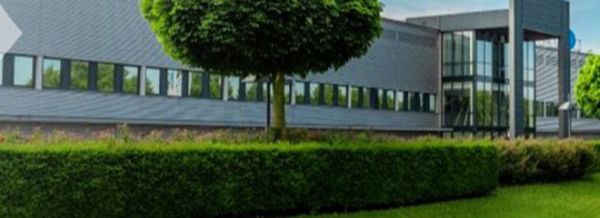
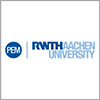
PEM RWTH Aachen University
Lifecycle Engineering & Strategic Research for Battery Circularity
The Chair of Production Engineering of E‑Mobility Components (PEM) at RWTH Aachen University, led by Prof. Achim Kampker, is a leading academic institution researching battery technology from production and design to disassembly and recycling in pursuit of fully circular battery systems. PEM integrates digitalization, sustainable materials engineering, and lifecycle analysis to drive innovation across the EV battery value chain.
Core Research & Services
PEM undertakes multi-disciplinary research covering battery disassembly automation, direct recycling, and material recovery optimization. Its projects include consortium-led studies on recycling approaches and ecological impact assessments, aiming to identify scalable pathways to high-efficiency resource reuse. PEM has documented that recycling EV batteries in Europe remains economically unprofitable under current conditions—where transportation and export of black mass represent up to 70 % of recycling costs—highlighting the urgent need for locally-refined capacity and strategic intervention.
Strategic Alignment with Circular Battery Economy
-
Mapping and optimizing battery recycling workflows—from dismantling to hydrometallurgical refinement—targeting >95 % recovery rates for cobalt, nickel and copper to exceed 70 % total recyclate efficiency.
-
Conducting lifecycle assessments (LCA) to compare environmental trade-offs of renewal vs recover pathways, evaluating carbon footprint break-even points tied to recycling methods and energy mixes.
-
Collaborating with policymakers and industry to define EU Battery Regulation compliance strategies, support mobile disassembly and direct recycling standards, and prioritize domestic processing of black mass to reduce material leakage and strengthen
PEM’s unique convergence of engineering expertise, process modeling, and policy-informed research makes it an anchor partner for battery recyclers, manufacturers, and regulators. Their work exposes critical cost and technological gaps in Europe’s recycling infrastructure, while offering data-based solutions to advance effective and high-value closed-loop battery systems.


Duesenfeld
Low-Emission Innovation for the Battery Circular Economy
Duesenfeld GmbH is a pioneering force in sustainable lithium-ion battery recycling, offering an innovative and environmentally responsible approach tailored to meet the growing demands of the electric vehicle (EV) industry. Based in Germany, Duesenfeld has positioned itself at the forefront of circular economy practices, developing proprietary technologies that drastically reduce the carbon footprint of battery recycling while maximizing the recovery of valuable raw materials.
With a process that eliminates the need for melting or smelting, Duesenfeld’s low-emission, mechanical-chemical recycling method achieves recovery rates of up to 96% for key materials such as lithium, cobalt, nickel, manganese, copper, and graphite. This approach also significantly reduces energy use and CO₂ emissions, making it one of the most environmentally friendly recycling processes available in Europe.
At the core of Duesenfeld’s offering is a mobile and scalable recycling solution, enabling decentralized processing of EV batteries closer to the source. This mobility reduces logistical costs, enhances safety, and improves the overall efficiency of the battery value chain. Their “Direct Recycling” strategy retains more of the functional material structure, making re-use and closed-loop recycling economically and environmentally viable.
Key Contributions to the EV Battery Recycling Industry:
-
Innovative, Low-Emission Recycling Technology
-
Mobile and Decentralized Recycling Systems
-
High Recovery Rates for Critical Raw Materials
-
Closed-Loop and Circular Economy Integration
-
Strategic Partnerships with Leading EV Stakeholders
As the EV market accelerates across Europe, Duesenfeld remains a key enabler of sustainable electrification—helping the industry transition toward a cleaner, circular, and more resource-efficient future.


VoltFang
Second-Life Battery Storage Enabling Circular Energy Solutions
Voltfang, headquartered in Aachen and founded as a spin‑off of RWTH Aachen University in 2019–2020, pioneers the reuse of electric vehicle (EV) battery modules by repurposing them into high-performance stationary battery storage systems. These solutions give EV batteries a “second life,” extending their usable lifespan by up to 10–15 years with a residual capacity of ≥ 80 %—offering both sustainability and economic efficiency.
Core Offerings & Innovation
-
Second Life & New Life Battery Systems:
Voltfang reconditions used EV battery modules or integrates surplus New Life batteries (never used in vehicles) into modular grid-connected storage systems. These systems eliminate new resource use while supporting local circularity in raw materials. -
Scalable Energy Storage Deployments:
Operating Europe’s largest second‑life battery factory since mid‑2025, Voltfang scales to manufacture up to 1 GWh/year of stationary energy storage, with a 250 MWh output target for next year and expansion to modular storage blocks from 1.3 to 25 MWh capacity. -
Energy Management & Revenue Services:
Their proprietary energy management system Venma enables peak-load shaving, dynamic tariff optimization (saving up to 40 %), self-consumption from renewables, grid services, and backup power. Clients include Stuttgart Airport and enterprise users optimizing energy profiles. -
Sustainability & Climate Impact:
In 2024, Voltfang delivered 360 MWh of storage capacity and achieved climate-positive status, saving more CO₂e than emitted while growing production 3.5× with >60 % fewer emissions per kWh year-on-year.
Voltfang exemplifies practical circularity in the EV battery ecosystem. By transforming decommissioned automotive batteries into high-value stationary storage, they fuse sustainability with technological innovation—reducing raw material imports, lowering CO₂ emissions, and powering Europe’s energy transition with scalable, climate-positive infrastructure.
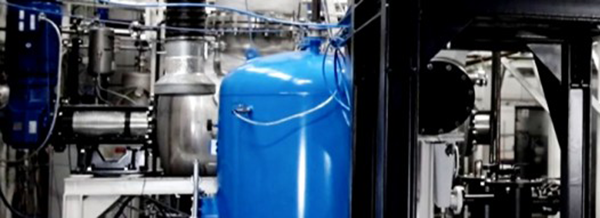
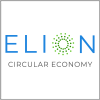
ELION
Industrial-Scale Hydrometallurgy Driving Closed-Loop Battery Materials
Founded in 2020 and based in Poland, ELION Circular is developing an innovative, scalable hydrometallurgical recycling process to transform waste lithium-ion batteries and production scrap into high-purity raw materials—recovering up to ~90% of lithium, cobalt, and nickel from black mass. ELION addresses the critical shortage of industrial recycling infrastructure in Europe by validating its proprietary technology at demonstration scale, with plans for rapid expansion into commercial deployment.
Circular Recycling Technology
-
Integrated Mechanical and Chemical Workflow: ELION’s process begins with mechanical shredding—efficiently extracting black mass without requiring prior discharge—and proceeds to hydrometallurgical refinement to separate cobalt, lithium, and nickel with battery-grade purity (~99.99% metallic cobalt).
-
Patent-Protected Efficiency: The technology, co-developed with academic partners, is affording ELION unique circular recovery capability. The demonstration-scale system has been funded in part through a €10.7 M support grant from Poland’s National Centre for Research and Development (NCBR).
ELION Circular tackles two foundational challenges in Europe’s battery strategy: the lack of domestic recycling capacity and reliance on imported raw materials. Their low-footprint, high-efficiency hydrometallurgical process enables the return of valuable metals into European supply chains—supporting compliance with the EU Battery Regulation and helping OEMs meet future recycled content mandates. With industrial scale deployment planned, ELION is poised to become a leading provider of vertically integrated battery materials recovery in the European energy transition.


Deloitte
Strategic Intelligence & Tech‑Driven Innovation for Battery Circularity
Deloitte combines global market intelligence, regulatory insight, and technology-led strategy to support a sustainable, circular future for electric vehicle (EV) battery systems. Through leading publications in partnership with CAS (Chemical Abstracts Service), Deloitte provides rigorous analysis of market dynamics, technological innovation, and policy drivers shaping the lithium‑ion battery recycling sector.
Key Services & Insights:
-
Market forecasts & material projections, outlining critical deficits in recycled lithium, cobalt, and nickel without accelerated recycling investment by 2030–2036.
-
Analysis of regulatory frameworks, including EU Battery Regulation and Extended Producer Responsibility (EPR), with targets for lithium recovery and recycled content mandates.
-
Evaluation of how digital technologies—AI, IoT, blockchain—can enhance traceability, efficiency, and economics across recycling value chains.
-
Strategic recommendations on circular business models, such as battery leasing, reuse pathways, and closed‑loop OEM recycling systems.
Why Deloitte Matters to EV Battery Recycling:
Deloitte brings multidisciplinary advisory capability—spanning sustainability, technology, supply chain, and regulatory strategy—to help industry stakeholders develop evidence-based roadmaps, design resilient infrastructures, and align investments with both EU policy targets and global decarbonization goals.
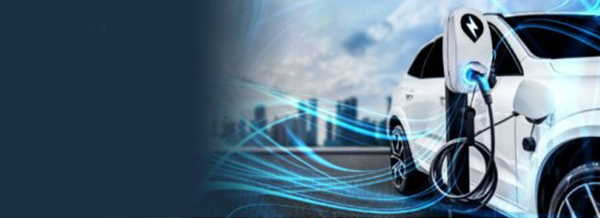

Project Blue
Data-Driven Intelligence for Battery Supply Chain Resilience
Project Blue delivers strategic market intelligence across the full value chain of critical battery raw materials—empowering the electric vehicle (EV) and recycling industries with data to drive resilience, transparency, and sustainability.
Specializing in key inputs such as lithium, cobalt, nickel, graphite, and manganese, Project Blue provides detailed demand forecasting, cost curve modeling, ESG risk analysis, and scenario planning for both primary supply and secondary (recycled) sources. With growing pressure on supply security and environmental performance, the company’s insights are instrumental in helping recyclers, OEMs, battery manufacturers, and policymakers anticipate disruptions and design closed-loop solutions.
Market Forecasting & Data Models
Covering 26 critical materials, with forward-looking supply-demand balances, pricing trends, and production cost curves, including modeling for recycled feedstock volumes and circular supply integration.
Sustainability & ESG Analysis
Evaluating the carbon intensity and environmental footprint of mineral extraction, processing, and recycling to support cleaner sourcing strategies and regulatory compliance in Europe’s tightening ESG landscape.
Strategic Advisory & Scenario Planning
Supporting clients with custom scenario development that accounts for evolving technologies (e.g. solid-state batteries), policy interventions (e.g. EU Battery Regulation), and infrastructure needs (e.g. regional collection and recycling networks).
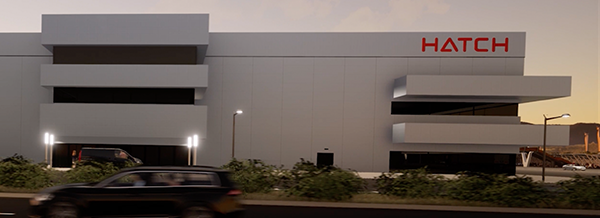
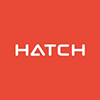
Hatch
Engineering Scalable Solutions for the Circular Battery Economy
Hatch is a global engineering, project management, and consulting firm that partners with industry leaders to develop, scale, and optimize sustainable solutions for the entire battery value chain—from raw materials extraction to battery recycling and reuse.
With deep roots in metallurgy, hydrometallurgy, and pyrometallurgy, Hatch is uniquely equipped to support the emerging infrastructure needs of the electric vehicle (EV) sector. The company provides technical expertise and full lifecycle project delivery for battery-grade material production, black mass processing, hydrometallurgical refining, and end-of-life battery recycling.
In the EV battery recycling space, Hatch helps design and implement advanced material recovery facilities, enabling clients to recover high-value metals such as lithium, cobalt, nickel, and manganese at commercial scale. Their work spans feasibility studies, front-end engineering design (FEED), permitting support, and EPCM (engineering, procurement, and construction management) services—ensuring safe, compliant, and cost-effective project execution.
Key Services Supporting EV Battery Recycling:
-
Custom process engineering for black mass treatment and refining
-
Techno-economic evaluations of recycling pathways (hydro vs pyro)
-
Design and construction of new battery material plants and retrofitting existing assets
-
ESG and decarbonization strategies, including waste minimization and energy optimization
-
Digital twin and automation integration to enhance traceability and performance
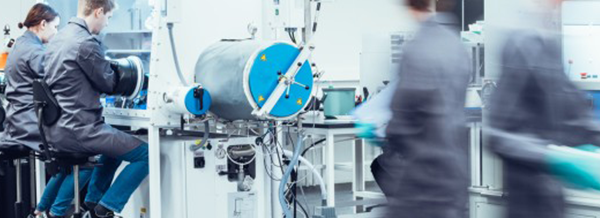
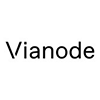
Vianode
Low-Carbon Recycled Graphite for Circular EV Battery Supply
Vianode is the pioneering provider of sustainable synthetic anode graphite, engineered to deliver ultra-low carbon intensity and support circularity in the EV battery supply chain. Headquartered in Norway, the company operates Europe’s most sustainable full-scale anode graphite plant—Via ONE in Herøya—which began production in late 2024 with a climate footprint of just 1.9 kg CO₂e per kg graphite—over 90% lower than conventional producers.
Circularity & Recycling Innovation
-
First commercial recycled graphite launch: In March 2025, Vianode introduced its first high-performance anode graphite derived from recycled battery-grade material, closing the material loop and reducing dependence on virgin sources.
-
Strategic collaboration for recycled materials: Vianode signed a Memorandum of Understanding with Fortum Battery Recycling in Finland to secure recycled graphite concentrate and optimize it for anode production, aiming to meet CO₂ec targets under 1 kg CO₂e per kg by 2030.
Technical & Sustainability Highlights
-
Proprietary closed-furnace production: Combining high precision graphitization technology with renewable energy, Vianode significantly reduces energy consumption, local emissions, and land use compared to open-furnace methods.
-
Third-party LCA verification: Certified by Minviro under ISO 14040/44, Vianode’s cradle-to-gate emission analysis confirms its anode graphite’s footprint to be ~1.9 kg CO₂e/kg—benchmarking it against an industry average of ~20 kg CO₂e/kg.
-
Circular target by 2030: Vianode aims to achieve ≥10% recycled content in their synthetic graphite products and reach a CO₂ footprint of 1.0 kg CO₂e/kg graphite through ongoing R&D and material sourcing innovations.
Strategic Impact in EV Battery Circular Economy
-
Enabling downstream circularity: Recycled graphite integration allows OEMs and cell producers to reduce LCA footprints, support EU recycled content mandates (e.g. 25% recycled graphite by 2030), and secure resilient local supply.
-
Scaling production capacity: Vianode’s rollout includes fast-track expansion at Herøya to support production volumes aligning with global EV demand—targeting supply capacity for up to 3 million EVs/year by 2030 across Europe and North America.
-
Policy-aligned role in Europe: Selected as an associated partner under IPCEI EUBatin—part of the EU’s €6 billion industrial battery initiative—Vianode contributes to Europe’s strategy for battery materials sovereignty and industrial decarbonization.
Vianode stands at the intersection of circular innovation, industrial-scale production, and sustainability leadership. By developing recycled and ultra-low carbon graphite especially for EV batteries, it positions itself as a critical enabler of transparent, high-performance, and sustainable battery systems.
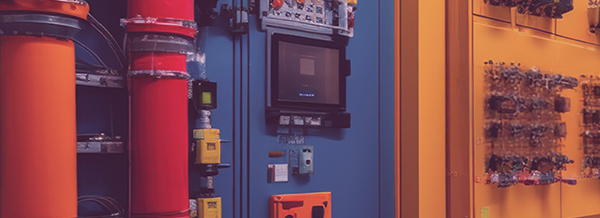
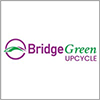
Bridge Green Upcycle
AI‑Enabled Upcycling of EV Batteries into High‑Purity Supply
Bridge Green Upcycle is a New York–headquartered cleantech startup transforming lithium‑ion battery end-of-life and manufacturing scrap into valuable precursor materials—without requiring new mining. It stands out for combining AI diagnostics, mechanical processing, and chemical extraction in a “clean, circular, and cost-effective” workflow.
Core Innovation & Process Flow
-
AI-enabled battery health screening: Prior to processing, used batteries are assessed via AI to determine suitability for second-life reuse versus material recovery.
-
Mechanical to chemical transformation: Batteries are safely discharged, shredded, sieved, and converted into high-grade black mass, which is then chemically refined to recover lithium carbonate, cobalt, nickel, manganese, and copper.
-
Urban mining model: The company sources batteries from local collection streams, including landfills, capturing value that would otherwise be lost.
Strategic Milestones & Market Relevance
-
Launched its Infinity Lab & Prototype Facility in Endicott, NY on December 5, 2024—to “clean up clean energy” by replacing traditional mining with recycled supply.
-
Recognized at the 2025 Reuters Events Global Energy Transition Awards, highly commended in the Circular Technology category for its integrated, sustainability-first recycling model.
-
Secured seed-stage investment from Launch NY ($5M+ via SSBCI programs), affirming its potential in reshaping domestic critical minerals supply.
Why Bridge Green Upcycle Matters to EV Battery Circularity
-
Circular materials loop: Upcycles end-of-life batteries into high-quality precursor materials suitable for battery manufacturing—closing the loop without fresh mining.
-
Lower-carbon footprint: Their process is designed to reduce greenhouse gas emissions compared to conventional recycling or mining pathways.
-
Domestic supply resilience: Provides domestic U.S. production of critical battery input materials, aligning with strategic supply chain independence goals.
-
Scalable impact: The company’s model is replicable across regions and end-use sectors, including battery manufacturing, pharmaceuticals, and industrial applications.
Bridge Green Upcycle merges technical innovation with a compelling circular economy strategy—helping accelerate a more sustainable, traceable, and low‑carbon supply chain for critical battery materials. Let me know if you’d like a version tailored for brochure copy, signage, or speaker introductions.
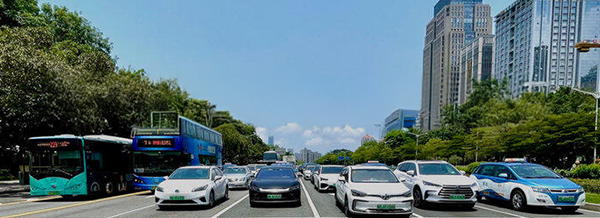

Circular Energy Storage
Global Intelligence Platform for Battery Lifecycle and Circular Markets
Circular Energy Storage (CES) is a UK-based market intelligence firm specializing in the global tracking and analysis of lithium-ion battery flows—from production and use to reuse, recycling, and material recovery. Through its data-driven platform, CES Online, the company delivers actionable insights on end-of-life volumes, scrap generation, reuse applications, secondary raw materials, and recycling infrastructure across more than 80 countries.
Core Platform Capabilities (CES Online):
-
Country-level datasets for battery production, use, collection, reuse, and recycling across Europe, Asia, and the Americas.
-
Black mass flow models estimating scrap generation from gigafactories, EVs, and consumer devices.
-
Recycling capacity tracking, covering >400 active and planned battery recyclers globally with details on throughput, chemistry, and commissioning dates.
-
Market dynamics dashboards monitoring LFP vs NMC/NCA chemistries, lithium and graphite recovery trends, and recycled content availability.
-
Scenario forecasting to 2035, showing how reuse and recycling can meet projected demand for lithium, nickel, cobalt, and graphite.
Strategic Insights for the EV Battery Recycling Sector:
-
Forecasts show that recycled lithium will only meet ~12% of global demand by 2030, underscoring the urgency for investment in processing infrastructure.
-
CES estimates the volume of lithium-ion batteries reaching end-of-life will exceed 4 million tonnes by 2035, driven by a surge in EV retirement and consumer device obsolescence.
-
The firm tracks emerging reuse markets, especially for LFP batteries from light EVs and e-buses, assessing their suitability for second-life deployment in stationary energy storage.
-
Policy advisory: CES supports EU and national regulators with circularity metrics, collection rate modeling, and recycled content validation to meet Battery Regulation targets.
-
Provides benchmarking to help recyclers assess feedstock competitiveness, geographic sourcing potential, and ROI based on chemistry, degradation patterns, and regional policy drivers.
As battery demand accelerates globally, CES empowers stakeholders to make grounded, data-informed decisions about infrastructure deployment, material recovery planning, and investment prioritization. By illuminating the complex flow of batteries from use to reuse to recycling—and quantifying the real circularity gap—Circular Energy Storage ensures that Europe’s and the world’s electrification transition is built on scalable, traceable, and sustainable foundations.

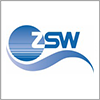
Centre for Solar Energy and Hydrogen Research
Research-Driven Circularity in Lithium‑Ion Battery Recycling
ZSW is a leading applied research institute based in Stuttgart and Ulm, with over 30 years of expertise in battery technology, renewable energy, hydrogen systems, and circular economy research. Its battery division—comprising more than 100 dedicated scientists—adopts a holistic approach spanning materials research, cell production, testing, systems integration, and recycling.
Relevance to EV Battery Recycling & Circular Economy:
-
ZSW’s Battery Recycling research focuses on recovering critical raw materials—such as cobalt, nickel, copper, lithium, and graphite—from used lithium-ion batteries, achieving recovery rates exceeding 85 % for metals and around 70 % for lithium.
-
The RecycleMat project pioneered a process to reactivate cathode and graphite materials through mechanical and thermal treatment, enabling direct reuse with up to 95 % of original battery capacity without full dissolution processes.
-
The ACTION initiative targets electrode rejects (manufacturing scrap, offcuts, defective electrodes) as high-quality secondary feedstock for recycling with reduced contamination and streamlined processing .
Core Contributions & Capabilities:
-
Advanced methods to chemically and thermally recondition electrode materials for direct reintegration into new battery cells.
-
Expertise in pilot-scale production and comparative testing of cells incorporating recycled content, ensuring performance parity with virgin materials.
-
Collaboration on ecosystem-building initiatives, including Europe-wide projects like TNO–Holst Centre partnerships focusing on lithium-ion battery innovation and integration .
As Europe’s EV industry evolves, ZSW stands at the intersection of scientific innovation and industrial application. Their work not only demonstrates the feasibility of high‑quality, materials‑efficient recycling, but also helps inform policy frameworks and industrial standards for a truly circular battery future.


Acatech
Engineering a Regulatory & Digital Foundation for Battery Circularity
acatech is Germany’s premier national academy of science and engineering, acting as the strategic voice of technology-driven policymaking and innovation frameworks. Through its Circular Economy Initiative Deutschland (CEID), acatech brings together stakeholders from academia, industry, and civil society to develop holistic roadmaps for circularity—particularly in EV traction batteries—and to translate complex technical insights into actionable public policy and industrial standards.
Core Capabilities & Strategic Roles
acatech leads a 21-member working group on traction battery life-cycle management, producing the pivotal CEID roadmap Resource-Efficient Battery Life Cycles – Driving Electric Mobility with the Circular Economy. This work defines strategic pathways toward a circular vision by 2030, outlining interventions on design for dismantlability, second-life deployment, digital product passports, and infrastructure harmonization.
The academy is a lead participant in the Battery Pass Consortium, which develops the technical foundations for the EU Digital Product Passport (DPP) for batteries. From February 2027, all EV and industrial traction batteries >2 kWh sold in the EU must include a DPP—allowing for traceability of carbon footprint, chemistry, service life details, and dismantling instructions.
acatech also contributes to critical guidance on carbon accounting and life cycle assessment methodologies under the EU Battery Regulation. Its publications on the Cut-off and Circular Footprint Formula approaches support consistent calculation of recycling-stage emissions and recycled content—essential for regulated environmental performance reporting.
Why acatech Matters to EV Battery Recycling & Circular Economy
acatech strengthens the systemic and regulatory infrastructure underpinning battery circularity in Europe. By shaping policy alignment, standardizing digital traceability, and guiding lifecycle accounting methodologies, the academy ensures that digital, industrial, and compliance systems evolve in tandem—with circular design and low-carbon recycling at their core. Its work enables industry, governments, and researchers to build trusted, interoperable, and high-integrity circular frameworks—transforming battery systems into a sustainable and resilient mobility economy.
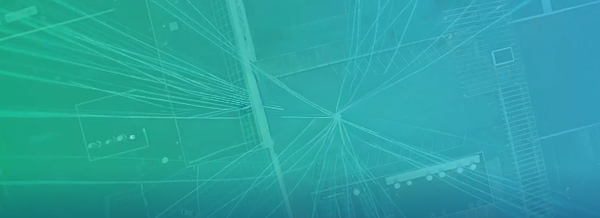

Primobius
Scalable, Low-Emission Recycling Plants Closing the Battery Supply Loop
Primobius is a joint venture between SMS Group and Neometals Ltd., combining leading engineering excellence with expertise in sustainable materials recovery to deliver end-to-end lithium‑ion battery recycling solutions. The company designs and builds scalable, environmentally focused plants that recover high-purity materials—including lithium, nickel, cobalt, manganese, copper, and graphite—from various battery chemistries and formats. Their technology enables clean integration of recycled materials back into battery supply chains.
Key Capabilities & Innovation
-
Advanced Two-Step Recycling Process
Primobius uses a patented process combining shredding and beneficiation with hydrometallurgical leaching and refining. This method efficiently extracts critical materials from black mass, yielding battery-grade sulfate products and minimizing reliance on high-carbon smelting techniques. -
Plant Engineering & Deployment
The company builds robust recycling plants with high safety and environmental standards. Their first commercial shredding facility in Hilchenbach, Germany, processes up to 10 tons per day of end-of-life or scrap batteries, enabling safe separation of black mass from metals and plastics. -
Strategic Collaborations & Licensing Model
Primobius partners with OEMs and recyclers—most notably building a hydrometallurgical “Hub” for Mercedes-Benz’s Kuppenheim site—while also adopting a licensing model, granting technology use rights and earning royalties in markets like North America.
Strategic Impact in EV Battery Circularity
Primobius accelerates Europe’s transition toward a circular battery economy by offering turnkey recycling infrastructure backed by global-scale engineering capabilities. Their technology supports decarbonization of the battery supply chain, strengthens regional sourcing resilience, and enables OEMs to comply with evolving environmental regulations. Through high-purity secondary material output and strategic partnerships, Primobius helps stakeholders close material loops and reduce reliance on virgin mining.


PowerCo SE
Powering Battery Circularity at Gigafactory Scale
PowerCo SE, Volkswagen Group’s dedicated battery company, is redefining the future of battery sustainability. As a cornerstone of Volkswagen’s global electrification strategy, PowerCo is building an end-to-end, closed-loop battery value chain that spans cell production, battery recycling, and raw material reintegration—with sustainability and circularity at its core.
From Salzgitter (Germany) to Valencia (Spain) and St. Thomas (Canada), PowerCo’s network of gigafactories isn’t just about battery production—they’re equipped with on-site recycling facilities designed to recover valuable materials from exhausted EV batteries and production scrap. This approach reduces environmental impact, enhances supply chain resilience, and lowers raw material dependency.
Recycling Innovation Through Partnership
PowerCo has formed a strategic joint venture with Umicore, one of Europe’s leading materials technology companies, to secure high-efficiency recovery of lithium, nickel, cobalt, and other critical metals. Together, they are setting new benchmarks in battery materials circularity, producing new cathode materials from recycled content and feeding them back into PowerCo’s Unified Cell platform.
Sustainability in Action
-
Closed-loop systems at gigafactories recover raw materials for reuse in new cells.
-
Aimed recovery efficiency: >95% for key battery materials.
-
Low-carbon production via renewable energy and process innovations like dry coating.
-
Targeting carbon-neutral battery production aligned with EU sustainability regulations.
-
Active R&D in safe, scalable recycling technologies to support mass-market electrification.
PowerCo’s Unified Cell design not only supports flexible chemistries like LFP, NMC, and Si-anode but is also engineered with recyclability in mind. By standardizing across platforms, PowerCo simplifies downstream disassembly and recycling—further optimizing the environmental and economic impact of battery life cycles.
PowerCo isn’t just a battery manufacturer—it is a circular battery champion. With €20+ billion committed by 2030, and a firm vision for closed-loop production, PowerCo is setting the pace for Europe’s sustainable battery future. Their presence at the summit highlights a growing consensus: sustainable mobility starts with sustainable batteries—and sustainable batteries begin with recycling.
Don’t miss the opportunity to showcase your latest technologies and solutions at this year’s highly anticipated EV Battery Recycling Innovation Summit Europe
As the leading platform for EV Battery Recycling advancements, our conference brings together top experts, researchers, and industry leaders in the field of electric vehicles and recycling innovation. This is your chance to share your breakthroughs, network with key players, and drive collaboration in the rapidly evolving Recycling landscape.
By sponsoring and exhibiting at our conference, you’ll gain unparalleled exposure to a global audience of decision-makers, influencers, and potential customers. Showcase your products, services, and expertise through our interactive exhibits, engaging presentations, and dynamic panel discussions.


